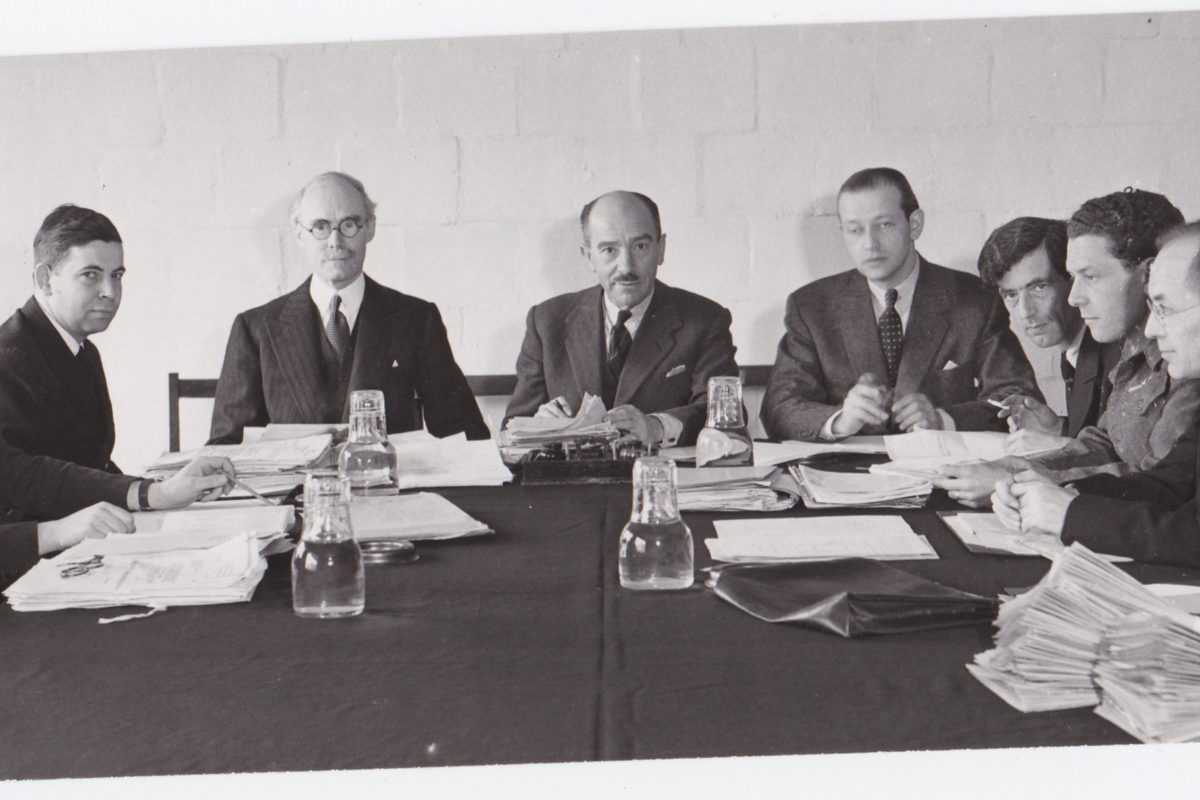Civilizing wartime violence?
The importance of the "London Hub" for the concept of "Crimes against Humanity"
For many years, legal concepts were a domain of legal analysis in which the historical context was hardly addressed. This has slowly changed since the beginning of the 21st century, but there are still many gaps. Kerstin von Lingen’s habilitation thesis „Crimes against Humanity“. Eine Ideengeschichte der Zivilisierung von Kriegsgewalt 1864–1945 addresses one of them, presenting an “intellectual history” of the civilization of wartime violence through the concept of “crimes against humanity”. The aim of the work is to fathom the dimension of the historical depth of the concept as well as the relationship between the motivations of the actors involved – primarily male jurists and politicians – on the one hand and the respective historical context on the other. Of central importance for the author are the discussions about the possible application of the concept in concrete war situations, but also in times of diminished war violence.
As too few before her, von Lingen realizes that it is crucial, especially with regard to the concept of “crimes against humanity”, which is supposedly part of 20th century history, not only to look at the world wars of the 20th century, which in legal literature are mostly regarded as relevant alone. Especially the “Martens Clause” laid down in the Hague Convention on the Laws and Customs of War of 1899 is of central importance for understanding the legal concept of “crimes against humanity”. Von Lingen is therefore right to use its three core elements – “laws of civilised nations”, “laws of humanity” and “public conscience” – as a central guideline and structuring element not only for the analysis of the meaning of “humanity” and how it was dealt with in the 19th century, but also for the time after that. Accordingly, the author links her theme with the struggle for the abolition of slavery and rightly refers to the debates on war practice and the regulation of war violence in the context of wars in North America and Europe between 1859 and 1871. Unfortunately, due to a partly somewhat volatile argumentation and some weaknesses in the contextualization of developments, she does not always succeed in pointing out existing or suspected connections between war events and the resulting debates, on the one hand, and the development of norms of international law, especially of “crimes against humanity”, on the other hand. She especially underestimates the role of Russia and the declarations of Brussels (1874) and St. Petersburg (1868). With regard to the aspects of the “laws of civilised nations” and the “laws of humanity”, deemed as very crucial by the author, the latter played a far more important role than the first Geneva Convention of 1864.
In the second half of the book, von Lingen analyses the activities of legal experts in the so-called “London Hub” during World War II, not least on the basis of the private papers of two central actors, Marcel de Baer and Bohuslav Ecer. She shows how important lawyers from Nazi Germany occupied states were for the further development of the concept of “crimes against humanity”. Without their work, which had been underestimated in previous research, it would not have been possible at the end of World War II to hold trials before international military tribunals for the first time. Von Lingen also proves that women have played an important role, which has so far been massively underestimated, in this process, not least because of their language skills. It is precisely here that the reviewer would have wished for even more substantial explanations, which would have linked the role of women during World War II more closely with the analysis of the 1915 Women’s World Peace Conference from the first part. The search for such connections could have shown why the share of women in the research on the development of norms under international law, which had hitherto been very male-dominated, has so far only been and continues to be dealt with at the margin.
In conclusion, it can be said that Kerstin von Lingen has presented a very convincing study, especially in the second part, which hopefully will serve as a starting point for many further studies of a similar nature. Hopefully researchers will continue to work persistently with the same energy as de Baer and Ecer did in their time and in their field.

Daniel Marc Segesser is director of undergraduate studies (Studienleiter), lecturer and adjunct professor (Privatdozent) at the Department of History of the University of Bern in Switzerland. On the one hand his current research focuses on the history of international law and international macro criminality in the latter 19th and early 20th century. On the other he works on aspects of transnational and global as well as environmental history of the First World War. For further information and a list of publications see here.
